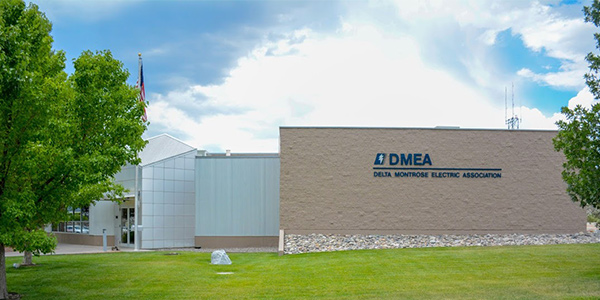Tri-State Generation and Transmission Association and Delta-Montrose Electric Association (DMEA) officially parted ways Tuesday, wishing each other well after 28 years of partnership.
The two cooperatives in April entered into a membership withdrawal agreement in which DMEA agreed to pay an $88.5 million exit fee in accordance with a July 2019 settlement agreement. (See Tri-State G&T, Delta-Montrose Reach Withdrawal Deal.)
FERC approved the breakup in June (ER20-1541, et al.). The Colorado Public Utilities Commission accepted the settlement agreement last year.
In a joint press release, each of the cooperatives’ CEOs extended best wishes to the other organization and its members. It was a friendly ending to a relationship that had turned acrimonious over the last 15 years. DMEA refused Tri-State’s 2005 request of its members to extend their contract from 2040 to 2050 to help pay for a coal-fired plant in western Kansas. Tri-State eventually pulled out of the Holcomb project and has begun a shift to renewable power as part of its Responsible Energy Plan. (See Tri-State to Retire 2 Coal Plants, Mine.)
In 2016, DMEA served notice to Tri-State that it planned to leave the partnership, saying it wanted to pursue cheaper renewable power and escape rates that had risen 56% since 2005. Tri-State initially asked for a reported $322 exit fee but settled with DMEA on the final amount.
Wholesale provider Guzman Energy, which has entered into a contract with DMEA, will pay Tri-State $72 million for DMEA’s contract while the co-op will pony up $26 million to Tri-State for transmission assets. DMEA also forfeited another $48 million in patronage capital to depart.
Tri-State and DMEA have also entered into new contracts for the continued operation of transmission and telecommunications systems.
“This separation marks a new chapter for both DMEA and for Tri-State, and as cooperatives, we both know it’s important to look forward for the benefit of our members,” DMEA CEO Jasen Bronec said. “We recognize our ongoing partnership with Tri-State in various areas, such as transmission, and appreciate the importance of our continued cooperation.”
DMEA, a rural distribution cooperative that serves about 28,000 member-owners in western Colorado, is the second member to leave Tri-State in recent years. Kit Carson Electric Cooperative left in 2016, with Guzman paying its $37 million exit fee.
Westminster, Colo.-based Tri-State is a not-for-profit cooperative with 45 members following DMEA’s exit. It has 42 member utility distribution cooperatives and public power districts in four states, with more than a million customers in nearly 200,000 square miles of the West.
Two of Tri-State’s three largest remaining cooperatives, United Power and La Plata Electric Association, are seeking their own early exits through proceedings at the Colorado PUC.
FERC in June set hearing and settlement judge procedures on Tri-State’s proposal for computing member exit fees (ER20-1559). The commission accepted Tri-State’s methodology but said it raises issues of material fact that cannot be resolved based on the existing record and has not been shown to be just and reasonable. (See FERC Sets Tri-State’s Exit-fee Rules for Hearing.)




